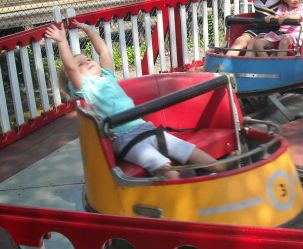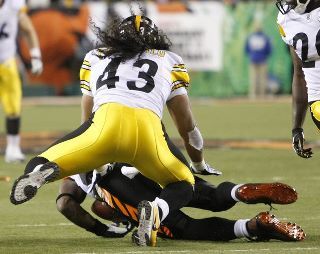Post by misty on Jan 7, 2007 14:26:40 GMT -5
We moved from a different location in January, 2007. This thread was transferred from there and has a different format than the ones which are created on this site.
Charlie Girl............Thread Started on Feb 24, 2006, 1:12pm
ADHD: An Age-by-Age Guide school.familyeducation.com/learning-disabilities/treatments/37765.html
The Early Years
The following symptoms may indicate that an infant, toddler, or preschooler has ADHD:
· A strong, intense reaction to being stimulated
· A high activity level; finding it hard to sit still, being constantly in motion
· Demanding and being persistent in their desire for things
· An inability to play with a toy or do one activity for a long period of time
· Inattention, negativity and a low capacity to adjust to change
· Having trouble sharing, waiting, and taking turns
· Poor eating and sleeping habits
· Serious defiance
The Elementary Years
A child with ADHD may:
· Be easily distracted and not able to finish assignments or chores
· Fidget and squirm in his/her seat and wander around the classroom
· Talk at inappropriate times and often blurt out answers to questions
· Be disorganized and frequently lose things
· Be socially immature, with few friends
If untreated, Russell A. Barkley, Ph.D., author of Taking Charge of ADHD, says that 30 to 50 percent of children between the ages of 7 and 10 with ADHD are likely to show symptoms of conduct disorder and behavior problems such as lying or petty thievery.
The Teen Years
According to Barkley:
· Thirty to 45 percent will receive special educational assistance by the end of sixth grade.
· Thirty percent of teens with the disorder may experiment with or abuse substances such as alcohol and marijuana.
· Thirty-five percent quit school before completion.
· At least three times as many teens with ADHD than those without the disorder have failed a grade, been suspended, or been expelled from school.
Charlie Girl............Thread Started on Feb 24, 2006, 1:12pm
ADHD: An Age-by-Age Guide school.familyeducation.com/learning-disabilities/treatments/37765.html
The Early Years
The following symptoms may indicate that an infant, toddler, or preschooler has ADHD:
· A strong, intense reaction to being stimulated
· A high activity level; finding it hard to sit still, being constantly in motion
· Demanding and being persistent in their desire for things
· An inability to play with a toy or do one activity for a long period of time
· Inattention, negativity and a low capacity to adjust to change
· Having trouble sharing, waiting, and taking turns
· Poor eating and sleeping habits
· Serious defiance
The Elementary Years
A child with ADHD may:
· Be easily distracted and not able to finish assignments or chores
· Fidget and squirm in his/her seat and wander around the classroom
· Talk at inappropriate times and often blurt out answers to questions
· Be disorganized and frequently lose things
· Be socially immature, with few friends
If untreated, Russell A. Barkley, Ph.D., author of Taking Charge of ADHD, says that 30 to 50 percent of children between the ages of 7 and 10 with ADHD are likely to show symptoms of conduct disorder and behavior problems such as lying or petty thievery.
The Teen Years
According to Barkley:
· Thirty to 45 percent will receive special educational assistance by the end of sixth grade.
· Thirty percent of teens with the disorder may experiment with or abuse substances such as alcohol and marijuana.
· Thirty-five percent quit school before completion.
· At least three times as many teens with ADHD than those without the disorder have failed a grade, been suspended, or been expelled from school.




